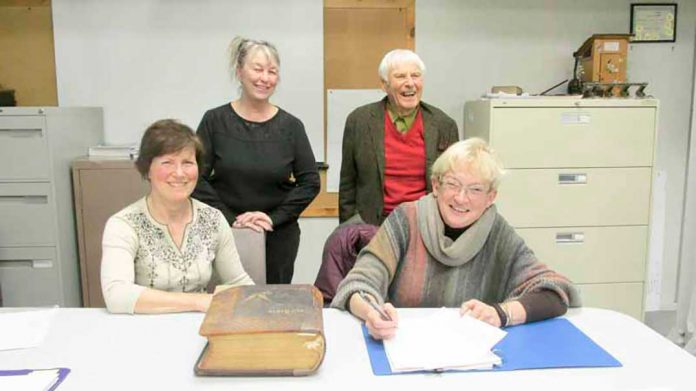MANITOULIN—Island and provincial politicians are among those raising concerns that the new provincial government cap and trade program will effect residents in Ontario, especially Northern Ontario, with increases in such things as higher gasoline and natural gas prices, and home heating costs.
“It will mean that much more financial stress to residents of Northern Ontario,” stated Algoma-Manitoulin MPP Michael Mantha, in a Monday interview, to the provincial government’s ambitious cap-and-trade program that came into effect January 1 with higher prices for gasoline and natural gas. The plan, which is aimed at reducing greenhouse gas emissions to 15 percent below 1990 levels within four years, will drive the price of gasoline up 4.3 cents per litre and increase the cost of home heating by up to $6.70 a month.
“We in Northern Ontario don’t have the transportation options other areas of the province have for travel, schools, doctors’ appointments, medical and other reasons to travel,” said Mr. Mantha. “So people in Northern Ontario are being penalized again by this government with these increases.”
Mr. Mantha said that the NDP party had, in 2016 when the cap and trade plan was introduced, put forward a recommendation. “We were specifically talking about putting together a fund of $25 million to be designated for Northern Ontario residents to curtail these costs on all fuel and gas and home heating prices, but this amendment was voted down.”
“The province is creating a greater financial stress for residents in Northern Ontario,” said Mr. Mantha.
“Basically the government is saying Merry Christmas and Happy New Year, now here’s your kick in the rear end,” stated Brian Parker, a Billings Township councillor who has been lobbying as well for equalized payments for Hydro One costs in the province, so those people in Northern Ontario pay the same costs as southern Ontario residents.
“And this cap and trade plan will be put in place forever,” said Councillor Parker. “Where it is going to end? People have been suffering enough with all the costs they have been paying, for decisions made by this government, such as hydro. And the HST hydro rebates that the province put in place at the start of this year will definitely not make up the costs being increased everywhere and with the cap and trade. The rebate is just smoke and mirrors, with the cuts being made in the one area, but these costs being picked up in other areas with the cap and trade plan. It shows that there is no real fiscal management in the province of Ontario. There are no real savings, we will just continue to suffer with rising costs.”
“And the worst part is that people can’t afford it,” the councillor continued. “People sit on their rear end in the GTA to get on a streetcar for $2 and this is subsidized by the rest of Ontario, but in Northern Ontario, in places like Manitoulin Island, we don’t even have public bus service. And bless those who are providing taxi services but this is on a piecemeal basis.”
As for the continued costs increase for hydro, Councillor Parker said that after the public meeting held with Hydro One and Hydro One Ombudsman representatives in December, “the next step is taking our concerns to the OEB (Ontario Energy Board) who have to change what they are charging for hydro use.”
Vic Fedeli, MPP for Nipissing, says that the cost of food, clothing any other products that are transported by truck are also expected to climb with the cap and trade plan. He told the North Bay Nugget in its January 3, 2017 edition that “(Premier Kathleen) Wynne is making Ontario uncompetitive and this will directly hurt families. This is part of Wynne’s war on the car, but it excludes the thinking of Northern and rural Ontario residents who need their vehicles to get around.”
“The province is creating a greater financial stress for residents in Northern Ontario,” said Mr. Mantha.
“It’s not like we live in southern Ontario where residents have access to GO trains and subways. All we have are our cars,” Mr. Fedeli told the Nugget.
The province says the program will generate about $1.9 billion annually, which will be used to support projects that reduce greenhouse gas emissions.
Mr. Fedeli told the Nugget the Liberals will continue to say this program is all about greenhouse gases, but the government is taking advantage of people’s good will and turning it into a revenue tool.
“Climate change is serious, but we need a credible plan that protects the taxpayer and the economy,” he told the Nugget.
In her 2016 annual report, auditor general Bonnie Lysyk said households will pay an average of $156 next year in added costs because of cap and trade, rising to $210 in 2019 plus another $75 that year in indirect costs on goods and services.





